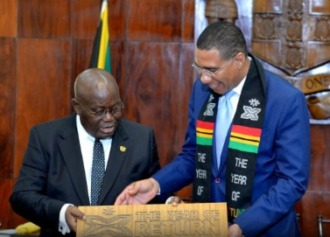The United Nations Committee on the Elimination of Discrimination against Women (CEDAW) has asked Jamaica to reconsider criminalizing abortion in cases where a pregnancy is a result of a rape or incest or in cases where it poses a threat to a mother’s health and life.
Abortion is currently a criminal act under sections 72 and 73 of the Offences Against the Persons Act. But the committee, which recently met with representatives from Jamaica during its 52nd session in New York, said it was concerned about the island country’s inadequate access to sexual and reproductive health care services that contributes to the high rates of teenage and unwanted pregnancies.
CEDAW said it was concerned that Jamaica’s criminal statute did not make a distinction in cases of pregnancies resulting from rape, incest and threats to a mother’s health and life and recommended that Jamaica, “Remove punitive provisions imposed on women who undergo abortions.”
The Jamaican delegation pointed out that the parliamentary committee that was convened to look at the possible amendment to the existing legislation has not yet been able to reach a decision.
The committee also noted the disproportionately higher number of Jamaican women living with HIV.
However, delegates representing the country pointed to a Declaration of Commitment that was signed by former Prime Minister Bruce Golding and the current Prime Minister Portia Simpson Miller in April 2011, to eliminate stigma and discrimination and gender inequality affecting the HIV response in Jamaica. They also cited numerous successes over the past few years in the fight to reduce HIV and AIDS cases.
One of the recommendations from the committee is that Jamaica strengthens the monitoring and data collection on women’s access to health care. The committee also suggested that there be free and adequate access to contraceptives so as to improve the access and quality of sexual and reproductive health services for women and girls.
CEDAW also pointed to the need for a large scale awareness-raising campaign to promote education on sexual and reproductive health and rights so as to assist in the reduction of teenage pregnancy and sexually transmitted diseases.
An expert body established in 1982, The United Nations Committee on the Elimination of Discrimination against Women is composed of 23 experts on women’s issues from around the world.
The Committee’s mandate is to watch over the progress for women made in those countries that are the States parties to the 1979 Convention on the Elimination of All Forms of Discrimination against Women. A country becomes a State party by ratifying or acceding to the Convention and thereby accepting a legal obligation to counteract discrimination against women. The Committee monitors the implementation of national measures to fulfill this obligation.
Jamaica’s Offences Against the Person Act makes it illegal for a pregnant person to attempt to obtain an abortion and for a doctor, or anyone else, to perform the procedure. Breaking the law is punishable by life in prison.
In 2005, the Abortion Policy Review Advisory Group was set up by Jamaica’s health ministry to examine the impact of the country’s abortion laws. The group found that most of the women seeking illegal abortions in Jamaica were “young, poor, unemployed and live in economically and socially deprived communities.” The group recommended then that abortion be legalized under certain conditions in the country, but no change in legislation has been forthcoming.


